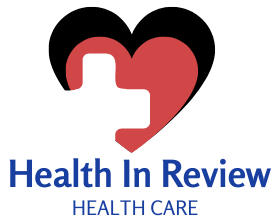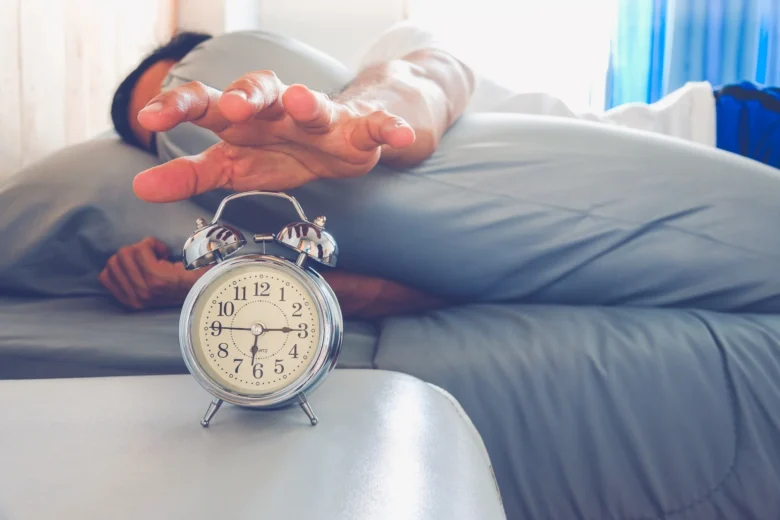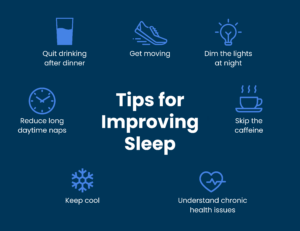Throughout history, many “successful” individuals have claimed to thrive on little sleep.
For instance, they often say:
- Thomas Edison slept 4-5 hours a day;
- Leonardo da Vinci managed around 2 hours;
- Mark Zuckerberg, CEO of Facebook, sleeps 5 hours.
But doesn’t everyone say, “You need enough sleep to stay healthy”?
So, should we sleep more or less? How much is ideal?
Part 1: Ideally, Adults Should Sleep 7-9 Hours a Day
To get straight to the point:
The National Sleep Foundation in the US recommended in 2018 that adults aged 18-64 should aim for 7-9 hours of sleep per day.
According to their standards, as long as you:
- Feel energetic during the day,
- Don’t struggle to get up,
- Don’t constantly feel fatigued,
Your sleep is generally sufficient, and there’s no need to worry.
Don’t be swayed by news suggesting that sleeping less is a hallmark of success.
After all, Mr. Zhang next door, who suffers from insomnia, only sleeps 4 hours a night, yet he isn’t a president, prime minister, or CEO.
If you try to emulate these successful individuals by sleeping less, you might face issues like weakened immunity, hair loss, headaches, ageing, weight gain, dark circles, lethargy, and developmental problems.
Many studies have shown that insufficient sleep can lead to a host of problems, essentially making you less attractive, gain weight, become less intelligent, fall ill, and even risk your life.
Part 2: Chronic Poor Sleep May Signal Health Issues
You might argue, why do some “successful people” seem energetic despite little sleep and no signs of balding?
First, understand whether they truly only need 4 hours or if they can only manage 4 hours.
Some people may suffer from insomnia due to health issues.
Sleep problems often accompany conditions like depression, anxiety, and endocrine disorders such as thyroid problems.
These conditions and emotional states can reduce sleep quality and duration, which isn’t something to envy.
Of course, if we consider another reason for “successful people” sleeping less, it could be genetic.
Recent studies have shown that a mutation in the DEC2 gene can make people “natural short sleepers.”
Those with this gene mutation not only sleep less but can function normally with less sleep, maintaining energy levels comparable to others.
To see if you’re one of the lucky ones, consider whether you often feel sleepy.
Part 3: Four Standards for Good Sleep
If we explore another reason for “successful people” sleeping less, it might be their high sleep quality.
You might have experienced feeling more tired despite sleeping in on weekends, compared to weekdays when you sleep and wake early.
This is because “good sleep” isn’t just about when you sleep or how long you sleep, but also involves other factors.
The National Sleep Foundation’s sleep quality guidelines include four recommended indicators:
- Falling asleep within 30 minutes;
- Returning to sleep within 10 minutes after waking at night (including bathroom visits);
- Waking up for more than 5 minutes no more than once a night;
- Spending 85% of your time in bed asleep.
If you meet these criteria, your sleep quality is likely quite good.
Part 4: Tips for Better Sleep
As busy modern individuals, how can we improve sleep quality if we can’t extend sleep duration?
Here’s a “Sleep Quality Improvement Checklist” for you to try:
- Establish a regular sleep schedule, with consistent sleep and wake times.
- Engage in relaxing activities before bed, like bathing, reading, or listening to soothing music.
- Avoid bringing phones or computers to bed; refrain from using them 30 minutes before sleep.
- Create a comfortable sleep environment by blocking light and reducing noise.
- Keep your bedroom cool and your bed comfortable.
- Avoid caffeine and nicotine in the afternoon and before bed.
- Don’t eat a heavy dinner or drink alcohol before bed.
- Exercise regularly, but not within 3 hours of bedtime.
- Limit naps to 20-30 minutes, preferably not after 3 p.m.
- Don’t lie awake in bed; if you can’t sleep after 20 minutes, get up and do something relaxing until you feel sleepy again.
If you follow these tips and still wake up refreshed after just 4 hours, without any stress, then…
Congratulations!
You might be on your way to “success”!





